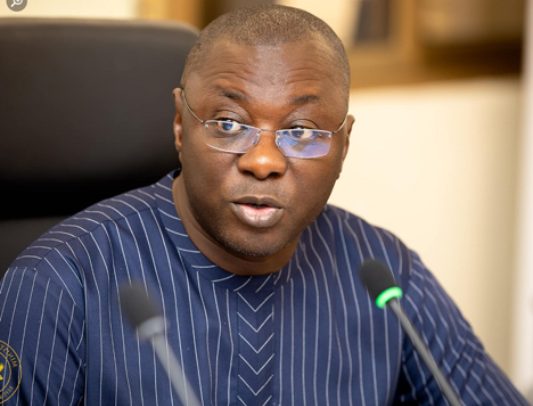Dr. Mohammed Amin Adam
The Minority in Parliament has accused the government of abandoning the welfare of ordinary Ghanaians while shifting attention to what they describe as questionable, high-priced security acquisitions following the recent military helicopter accident.
Addressing the media in Parliament last Friday, the immediate-past Finance Minister, Dr. Mohammed Amin Adam, said the government appeared to have “forgotten about the very people whose votes brought it to power”, insisting that current policy choices proved that citizens were “no more a matter of concern” to the administration.
Dr. Adam alleged that the tragic helicopter accident, which claimed the lives of some “gallant citizens”, was now being used as a convenient justification for procuring two executive jets, four helicopters and two offshore patrol vessels at a combined cost of US$1.2 billion.
He questioned the urgency and relevance of the purchases, especially the two executive jets, at a time the government was demanding further sacrifices from workers.
“Government must come clear why the purchase of two Executive Jets is a priority at the very moment it is asking Ghanaian workers to tighten their belts,” he stressed, while responding to the budget presentation by the Finance Minister last Thursday.
Finance Minister
On the floor of Parliament, the Finance Minister, Dr. Cassiel Ato Forson, revealed that the government was making substantial investments to strengthen the operational effectiveness of the Army, Navy and Air Force in response to evolving security threats.
He noted that the Army’s modernisation had been hindered by a 2020 agreement for 19 Armoured Personnel Carriers (APCs), under which US$40 million had already been paid without the delivery of a single vehicle.
He said the government was renegotiating the deal to prevent financial loss and would return it to Parliament.
On the Navy, the Minister highlighted a range of constraints, including an ageing fleet and incomplete Forward Operating Base facilities in Ezinlibo.
As part of the retooling efforts, he announced plans to acquire two 72-metre Offshore Patrol Vessels equipped with helipads and combat systems to strengthen maritime security, protect offshore oil and gas installations, and enhance anti-piracy operations.
Turning to the Air Force, Dr. Forson outlined significant challenges such as an ageing fleet and high maintenance demands. Beginning in 2026, he said, procurement processes would commence for four modern helicopters, one long-range aircraft, and one medium-range aircraft, with deliveries expected within four years once approval processes are completed.
But the Minority insists that the government’s emphasis on defence spending ignores the deepening economic hardships confronting the public.
Dr. Adam argued that the macroeconomic stability the government claimed in the budget had failed to reflect in real economic performance.
He pointed to the 6.3% GDP growth recorded in the second quarter of 2025, which fell below the 7% posted during the same period in 2024, saying this was evidence of weakening aggregate demand and rising unemployment.
He also questioned why the government was projecting 4.8% growth in 2026, lower than the 5.7% achieved in 2024, a year the Finance Minister previously described as one of “reckless” economic management. “Why is this stability not generating growth?” he asked.
Responding to the government’s claim that Ghana had moved from high to moderate debt distress, Dr. Adam insisted the administration was taking undue credit for progress made through the extensive debt restructuring undertaken in 2024.
He cited the restructuring of GH¢20 billion in domestic debt, US$13.1 billion in Eurobonds, and US$5.1 billion owed to bilateral creditors, saying these were the actual reasons debt levels had improved.
The Minority urged the government to reconsider its spending priorities, warning that costly aircraft and naval vessels should not overshadow urgent economic interventions.
They stressed that while national security is important, it must not come at the expense of citizens already struggling with rising living costs and limited job opportunities.
By Ernest Kofi Adu, Parliament House


